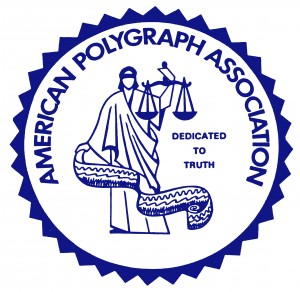 On 4 July 2015, in a message board post titled “APA Board Conpires [sic] to Limit Eligibility for Elections and International Influence,” a pseudonymous user posting as “Dedicated to Truth” ((“Dedicated to Truth” is the official motto of the American Polygraph Association.)) attached a Microsoft Word document purporting to be a working draft (141 kb .doc file) of the American Polygraph Association’s bylaws. AntiPolygraph.org has reason to believe that this document is genuine.
On 4 July 2015, in a message board post titled “APA Board Conpires [sic] to Limit Eligibility for Elections and International Influence,” a pseudonymous user posting as “Dedicated to Truth” ((“Dedicated to Truth” is the official motto of the American Polygraph Association.)) attached a Microsoft Word document purporting to be a working draft (141 kb .doc file) of the American Polygraph Association’s bylaws. AntiPolygraph.org has reason to believe that this document is genuine.
The draft bylaws indicate that the APA’s board of directors is seeking to limit electoral challenges from outsiders such as that posed by Daniel Mangan of New Hampshire, who is running for the position of president-elect against J. Patrick O’Burke, a current APA vice president and member of the board of directors who is also director of The Polygraph Institute, LLC, a Texas polygraph school.
“Dedicated to Truth” alleges that Mangan’s candidacy is opposed by the APA board of directors and that the board is contemplating a change to the bylaws that if currently implemented, would have shielded O’Burke from Mangan’s electoral competition. At present, any voting member may be nominated for the position of president-elect. The draft bylaws would change this by adding the requirement that a candidate for the position of president-elect be a sitting member of the board of directors. ((See para. 5.1.)) If adopted, perhaps this section should be called “the Mangan Rule.”
“Dedicated to Truth” also alleges that “there is talk…of adding a requirement that anyone seeking election to the BOD must have attended the previous annual seminar.” This latter provision appears to have not yet been written into the draft bylaws.
AntiPolygraph.org understands that in recent years, a growing number of the APA’s new members have been recruited from abroad, often encouraged to join by the American polygraph instructors who train them. “Dedicated to Truth” writes: “The BOD is…afraid of an international takeover of the Association and is planning on excluding non-US citizens from becoming Members of the Board,” pointing to a marginal note by APA general counsel Gordon Vaughan stating in relevant part “RAY NELSON TO DRAFT PROPOSED LANGUAGE THAT NO OFFICER MAY BE NON-US CITIZEN.”
The current draft language would allow a maximum of two members of the board of directors to be non-US citizens, make English the official language of the APA, and impose requirements that might be onerous for any board member not a resident of the United States. In addition, the APA board would require a three-fourths supermajority vote by the general membership to change these restrictions:
4.5 International Composition of the Board of Directors. At no time may more than two (2) Directors positions be held by a person who is not a citizen of the United States of America.
The Official Language of the APA is English and official correspondence must be in English. The official National Office for the APA must be in the continental United States (CONUS) with at least one annual meeting held in a CONUS location that is attended by a quorum. All Directors must agree and be capable of traveling to CONUS locations for all Board meetings. The banking institution holding the funds for the APA must also be in a CONUS location. The provisions in 4.5 may not be changed except by a three fourths (3/4) majority vote of the general membership.
The American Polygraph Association is holding elections via electronic voting this week (5-11 July 2015).